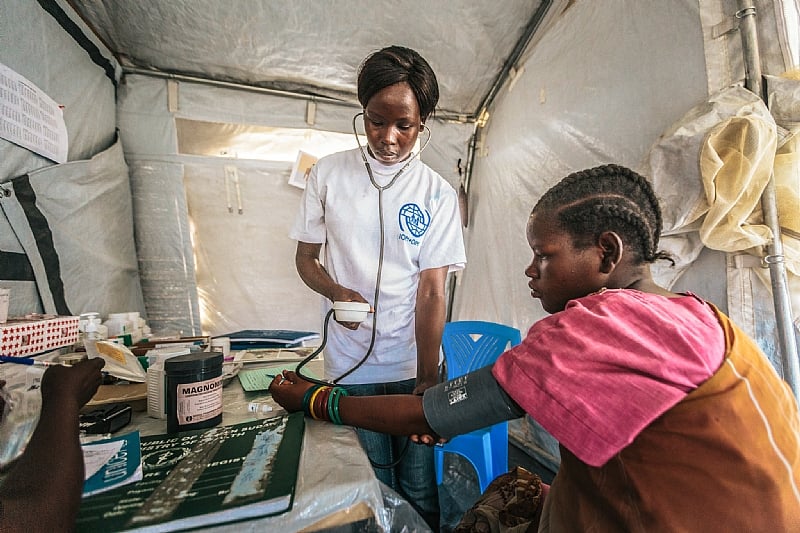The International Organization for Migration (IOM) is actively responding to a cholera outbreak in Renk, Upper Nile state, amidst the ongoing conflict in Sudan that has forced hundreds of thousands to flee. Renk serves as a critical transit point, currently sheltering over 13,000 newcomers in a crowded center where the risk of diseases like cholera increases due to inadequate access to clean water and sanitation resources. This public health crisis began after the South Sudan Ministry of Health confirmed six cholera cases, with an additional 59 suspected cases reported. Aaron Adkins, IOM’s Emergency Response Coordinator in South Sudan, emphasized the organization’s commitment to providing care and support, as well as implementing preventive measures to control the outbreak’s spread.
The ongoing influx of displaced individuals exacerbates the situation in Renk, where over 684,000 people have crossed through the Wunthuo Point of Entry (PoE). IOM has established a presence in this area to enhance surveillance efforts and facilitate case identification. Trained clinicians are now stationed at the PoE and transit centers in Renk and Malakal to ensure rapid detection and reporting of cholera cases, highlighting the importance of immediate treatment for affected individuals. IOM has also set up Oral Rehydration Points (ORPs) at these clinics to provide essential hydration support that can save lives during this critical time.
Integral to IOM’s strategy is effective risk communication which educates the local community about cholera prevention and hygiene practices. This outreach empowers residents to take proactive measures in safeguarding their health, particularly in an environment where the disease could spread quickly due to the congested living conditions in transit centers. By informing individuals about the significance of hygiene and early treatment, IOM aims to enhance community resilience against cholera and other waterborne diseases.
Moreover, IOM has been focusing on strengthening the capacities of local healthcare providers. This entails training clinicians on how to promptly define and identify cholera cases, alongside administering rapid diagnostic tests. These training initiatives are crucial for improving the speed and quality of responses to potential cholera cases, ensuring that patients receive timely and effective medical care when needed. Such proactive steps are necessary to curtail the spread of the disease and mitigate its impact on vulnerable populations.
In addition to healthcare interventions, IOM’s response encompasses a comprehensive focus on water, sanitation, and hygiene (WASH) initiatives. These measures are designed to significantly reduce cholera transmission risks. IOM has also been ensuring that individuals receiving Onward Transportation Assistance are well-informed about cholera response protocols. This education is pivotal during their transit, as it helps minimize the risk of further infections within this displaced population.
The cholera outbreak represents a serious public health threat to vulnerable communities arriving from Sudan, who are already facing numerous challenges. IOM’s multi-faceted response, in collaboration with other humanitarian organizations, strives to contain the outbreak while safeguarding the well-being of those at greatest risk. The organization’s ongoing commitment to support the South Sudanese government and partner agencies reflects an urgent need for sustained international community backing to expand these vital interventions as the situation continues to evolve. This collective effort is crucial not only for immediate health concerns but also for enhancing long-term resilience in Renk and surrounding areas.


